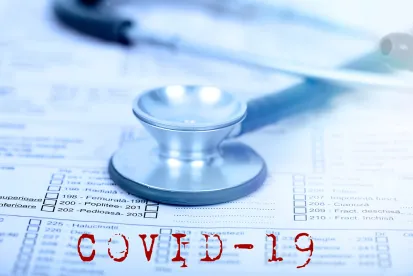In recent writings, we’ve informed you about insurance legislation introduced in several states to deal with the coronavirus pandemic. This legislation generally seeks to compel insurers to provide coverage for the business interruption insurance their policyholders purchased and forbids insurers from arguing that coverage is precluded by virus exclusions or by “physical damage” to property requirements. This blog updates the status of proposed legislation and alerts you to new bills that have been introduced.
Newly proposed bills:
Congressman Mike Thompson (D-CA) recently introduced H.R. 7412, the Business Interruption Relief Act of 2020. Though the text of the bill has not yet been made available, the press release indicates that it seeks to assist small businesses that have been hard hit by the pandemic and to eliminate the confusion regarding whether business interruption insurance will cover their losses. The bill would do this by “creating a voluntary program that would reimburse insurers who voluntarily pay out business interruption claims.” Under the program, “insurers can choose to pay out claims to these businesses and be reimbursed by the federal government. This would simultaneously provide a boost to businesses of all sizes with business interruption insurance coverage and prevent potentially years of costly litigation. Eligible businesses would be limited to those with (a) business interruption insurance that (b) includes civil authority shutdowns but (c) excludes virus-related damages.” Id. We will update you when the text of the bill becomes available.
California Assembly Bill 1552, another newly proposed bill, takes a somewhat different approach. It creates a rebuttable presumption, in policies that do not have virus exclusions, that income losses suffered by businesses as the result of the pandemic resulted from physical damage under the policies. It also creates a rebuttable presumption that, unless the policy expressly defines “pollutant” to include viruses, the coronavirus is not a pollutant and therefore is not excluded from coverage. The bill would apply retroactively to all policies in effect as of March 4, 2020. The bill is currently pending in the Insurance Committee of the Assembly.
In Rhode Island, two bills have recently been introduced that would impact business interruption coverage for small businesses shut down because of the pandemic. H. 8064, which would apply to businesses with less than 100 employees, provides that business interruption policies “shall be construed to include . . . coverage for business interruption due to global virus transmission or pandemic . . . .” The bill further provides that insurers that pay coronavirus claims under their business interruption coverage “may apply to the department of business regulation insurance division for relief and reimbursement” of these payments.
H. 8079, which applies to businesses with up to 150 employees, is a bit more detailed. It similarly provides that business interruption policies should be construed to include coverage for coronavirus, but includes “all mutated forms of the COVID-19 virus.” The bill also expressly requires insurers to cover coronavirus claims even if their policies have a virus exclusion or require “physical damage” to property to trigger coverage. Like H. 8064, H. 8079 provides that insurers may seek reimbursement for claim payments from the department of business regulation; and it authorizes the department to make assessments against business interruption insurers to fund such reimbursements.
Previously proposed bills
In Louisiana, H. 858, which would have required business interruption policies issued to businesses with less than 100 employees to cover business interruptions caused by the coronavirus, failed in the State House. Proposed legislation in the District of Columbia regarding business interruption coverage for coronavirus claims also failed.
Bills in Massachusetts, Michigan, New Jersey, New York, Ohio, Pennsylvania, and South Carolina remain under consideration. Each of these bills has been referred to the appropriate legislative committee and is awaiting action.



 />i
/>i
